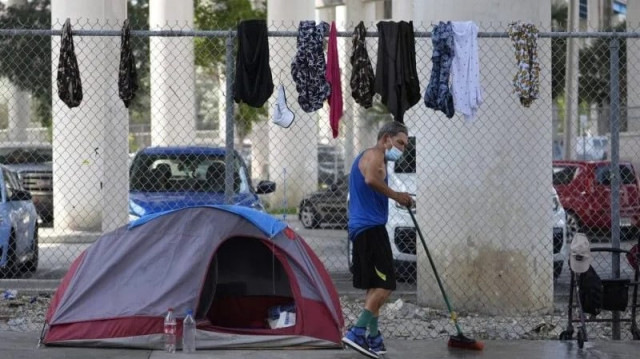Florida’s strict anti-homelessness law takes effect
US state estimates its homeless population at around 31,000, though advocates say that number is likely underestimated

A new Florida law banning homeless individuals from sleeping in public spaces, one of the toughest anti-homeless statutes in the US, went into effect on Tuesday.
The law requires municipalities to designate specific areas for camping and sleeping if shelters are full, with access to clean restrooms and running water.
Starting January 1, Florida residents, business owners, and the state will be able to sue municipalities they believe are not doing enough to prevent homeless people from sleeping in public spaces like parks or benches, according to The Associated Press.
The law, signed by Governor Ron DeSantis in March, aims to eliminate homeless encampments and protect the quality of life for citizens. The state estimates its homeless population at around 31,000, though advocates argue that number is likely underestimated.
The law also mandates constant law enforcement monitoring of shelters and designated spaces, with access to behavioural health services for issues such as substance abuse and mental health. Drug and alcohol use is prohibited on the properties.
Although the state has allocated $30 million to support municipalities to implement the law, local officials say the funding is insufficient. The largest allotment for any county is around $600,000, sparking concerns about how cities will meet the new requirements.
Some South Florida cities and counties are scrambling to find solutions.
In Miami-Dade County, an abandoned hotel has been converted into a shelter for older homeless individuals, and the county is considering purchasing nearly 200 houses. Palm Beach is exploring the option of designated overnight parking lots for people living in their cars.
Local advocates have expressed frustration, noting they can guide individuals to shelters but have limited control once those doors are reached.



















COMMENTS
Comments are moderated and generally will be posted if they are on-topic and not abusive.
For more information, please see our Comments FAQ